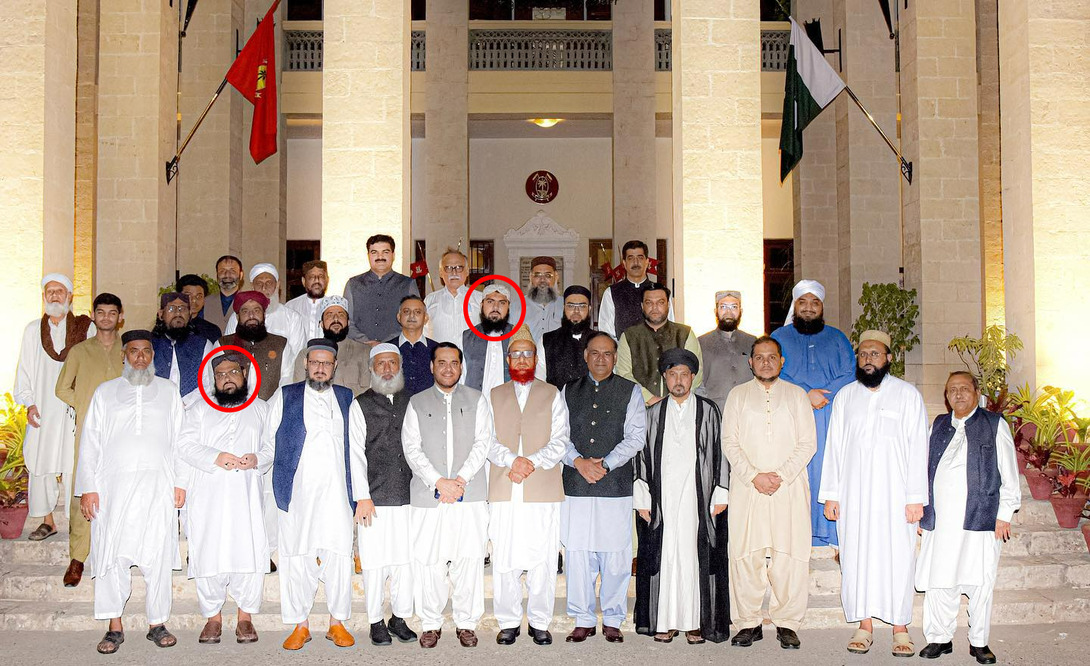Leaders of the banned terrorist outfit Sipah-e-Sahaba Pakistan (SSP) were invited to an Iftar dinner hosted by Director General Rangers Sindh Major General Azhar Waqas at Rangers Office, Karachi last week.
SSP leaders Rab Nawaz Hanfi and Aqib Swati were invited to the dinner, according to social media reports.
Anti-Shia militant group SSP was founded in September 1985 and was involved in terrorism, violent sectarianism, and local and national electoral politics. It was banned by then-president Pervez Musharraf in 2002 as a terrorist organisation under the Anti-Terrorism Act of 1997.
DG Rangers Sindh invited Rab Nawaz Hanfi & Aqib Swati, leaders of banned terrorist outfit Sipah Sahaba in an iftar dinner hosted at Rangers office Karachi. Ludhyanvi’s presser & now this. State relaunching blood-thirsty extremists & their fav strategic assets. Dark times ahead! pic.twitter.com/9zHo9vAH0U
— Asad Gokal (@asadgokal) April 20, 2023
پہنچی وہیں پہ خاک جہاں کا خمیر تھا
Arrived at the place where the soil was !!
DG Rangers Sindh invited
Rab Nawaz Hanfi & Aqib Swati, leaders of banned terrorist outfit Sipah Sahaba in an iftar dinner hosted at Rangers office Karachi#Terrorist_Supported_by_LEAs#Shiagenocide pic.twitter.com/toKmtHhh8X— Rashid Rizvi (@srashidrizvi) April 21, 2023
Earlier, SSP leader Muavia Azam Tariq was allowed to leave Pakistan and tour Europe, despite being on the Fourth Schedule List of the Anti-Terrorism Act.
According to National Counter Terrorism Authority (NACTA), any individual who has a history of being linked to a proscribed organisation can be subjected to restrictions on travel, speech, and business, under the Anti-Terrorism Act of 1997. The names of such proscribed persons are included in the 4th Schedule.
NACTA’s website states that there are passport and arms license embargos on such individuals. The list of proscribed persons is also shared with the State Bank of Pakistan for monitoring and freezing of their accounts. They are also kept under strict surveillance by intelligence agencies as well as concerned police departments. There is also a ban on loans and credit cards for them.


